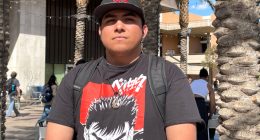
SAN FRANCISCO— Tesla Inc. TSLA 1.34% subjected a Black former worker to a racially hostile work environment and failed to take reasonable steps to prevent him from being racially harassed, a federal jury found Monday.
The eight-person jury awarded more than $130 million in damages to Owen Diaz, who worked as an elevator operator at Tesla’s Fremont, Calif., factory in 2015 and 2016.
He was regularly called racial epithets at work, where he saw racist images and language written in the bathroom and elsewhere, said Bernard Alexander, one of his attorneys, during the trial. The factory, located in the San Francisco Bay Area, was Tesla’s lone auto assembly plant at the time, employing roughly 10,000 people.
Mr. Diaz, 53, held his head in his hands after the jury’s verdict was read. He called the decision a weight off his shoulders. The trial lasted just over a week.
“It shines a light on what’s going on inside of Tesla’s factory,” he said. “Elon Musk, you’ve been put on notice. Clean that factory up.”
Tracey Kennedy, an attorney for Tesla, said in her closing argument that there was no evidence that a Tesla employee harassed Mr. Diaz and that the company shouldn’t be held liable for the treatment Mr. Diaz alleged. Many workers at Tesla’s factory are contractors employed through staffing agencies.
Tesla’s vice president of people, Valerie Capers Workman, said in an email to employees Monday that when Mr. Diaz complained about harassment, the company ensured its staffing agencies took action.
“While we strongly believe that these facts don’t justify the verdict reached by the jury in San Francisco, we do recognize that in 2015 and 2016 we were not perfect,” she said in the note, which was republished on Tesla’s blog.
Tesla Chief Executive Elon Musk didn’t immediately respond to a request for comment on the verdict or any plans to appeal.
The trial centered on three claims: that Tesla subjected Mr. Diaz to a racially hostile work environment; that the company failed to prevent him from being racially harassed; and that it was negligent in its supervision or retention of an employee, causing harm to Mr. Diaz.
Tesla denied in a court filing that it was aware of the alleged discriminatory and harassing behavior and didn’t take action to protect Black employees. Ms. Kennedy urged the jury to find in Tesla’s favor on each of the claims.
The jury, after roughly four hours of deliberation, found in favor of Mr. Diaz on all claims and ordered Tesla to pay Mr. Diaz $6.9 million in compensatory damages and $130 million in punitive damages.
It is the second time in recent months that the electric-vehicle maker has been found liable in a case involving claims of race-based harassment or discrimination.
Another Black former Tesla worker, Melvin Berry, won a $1 million judgment in May after an arbitrator found that he was called racial slurs by his supervisors and subjected to other racial conduct in the Fremont factory. Tesla was obligated to investigate and stop the racial discrimination and failed to do so, the arbitrator said in her order.
Tesla said that any actions the company took weren’t racially based, according to the order.
Mr. Diaz, who was employed by a staffing agency, didn’t sign an arbitration agreement, allowing his case to proceed to trial. His attorneys said they believed this to be the first case involving alleged harassment or discrimination at Tesla to reach trial.
Tesla is facing similar claims in California state court, where former Tesla assembly worker Marcus Vaughn sued, alleging that Tesla created an intimidating, hostile and offensive work environment for Black workers. He and other plaintiffs are seeking class certification.
Tesla has denied the claims, court records show. In a blog post after Mr. Vaughn filed his lawsuit in 2017, Tesla said, “it is not humanly possible to stop all bad conduct, but we will do our best to make it as close to zero as possible.”
An investor proposal up for consideration at Tesla’s annual shareholder meeting Thursday calls on the board to oversee preparation of a report about how the company’s use of mandatory arbitration affects employees and corporate culture. Tesla’s board has urged investors to vote against the proposal. A similar measure failed last year.
Write to Rebecca Elliott at [email protected]
Copyright ©2021 Dow Jones & Company, Inc. All Rights Reserved. 87990cbe856818d5eddac44c7b1cdeb8








